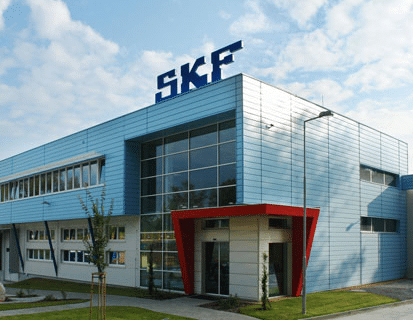
Introduction:
Temperature adaptability is a critical factor in bearing performance, especially in industries where machinery operates in a wide range of temperature conditions. NSK and SKF, two leading bearing manufacturers, have distinct approaches to temperature adaptability in their bearings. In this comprehensive comparison, we explore the temperature adaptability of NSK bearings versus SKF bearings, highlighting the factors that differentiate them and their significance in various industrial applications.
Understanding Temperature Adaptability:
Temperature adaptability in bearings refers to their ability to function effectively and reliably across a range of temperatures. Bearings must withstand temperature extremes without sacrificing performance, durability, or lubrication.
NSK Bearings:
NSK’s reputation for engineering excellence extends to their focus on temperature adaptability. Several key factors contribute to their bearings’ ability to operate across varying temperature conditions:
Wide Temperature Range: NSK bearings are designed to perform reliably in a wide range of temperatures, making them versatile in various environments, from extreme cold to high heat.
Lubrication Efficiency: NSK’s bearings are engineered for efficient self-lubrication, which remains effective even in temperature extremes, ensuring the bearing’s longevity and performance.
Materials and Coatings: NSK employs materials and coatings that are resistant to temperature-induced wear, ensuring that the bearing components retain their integrity over a wide temperature spectrum.
Corrosion Resistance: In applications where exposure to moisture and corrosive substances is a concern, NSK’s corrosion-resistant bearings provide longevity and reliability.
Precision Manufacturing: NSK’s precision engineering maintains consistent performance even under temperature fluctuations, reducing the risk of variations in operation.
Customized Solutions: NSK offers customization options for temperature-specific applications, ensuring the bearing can adapt to unique temperature demands.
SKF Bearings:
SKF, another esteemed manufacturer, places a strong emphasis on temperature adaptability in its bearing designs. The following features set SKF bearings apart in terms of temperature adaptability:
Broad Temperature Range: SKF’s bearings are designed to perform across a broad temperature range, from extreme cold to high heat, ensuring they can operate effectively in a variety of environments.
Advanced Lubrication Solutions: SKF offers innovative lubrication options, including high-temperature greases and specialized oils, to ensure the bearing’s lubrication remains efficient and consistent in temperature extremes.
Materials and Coatings: SKF utilizes temperature-resistant materials and coatings to safeguard bearing components from wear and maintain their performance over a wide temperature spectrum.
Sealing Technology: SKF’s advanced sealing solutions not only protect the bearing from contaminants but also contribute to temperature adaptability by preventing temperature-induced fluctuations in lubrication.
Customization for Temperature: SKF provides customization options to tailor bearings for specific temperature applications, ensuring they can withstand extreme heat or cold.
Conclusion:
Temperature adaptability is a critical factor in many industries, from automotive and aerospace to industrial and energy. Both NSK and SKF are esteemed manufacturers, and each offers unique advantages in terms of temperature adaptability in their bearings.
NSK’s bearings are known for their wide temperature range, lubrication efficiency, materials and coatings for temperature resistance, corrosion resistance, precision manufacturing, and customization options. These features make NSK bearings versatile and adaptable to diverse temperature conditions.
Similarly, SKF’s broad temperature range, advanced lubrication solutions, temperature-resistant materials and coatings, sealing technology, and customization options ensure their bearings excel in adapting to extreme temperature variations.
The choice between NSK and SKF bearings for applications that demand temperature adaptability depends on the specific requirements of the application. Careful consideration of factors such as the temperature range, lubrication, and customization options will enable you to make an informed decision to optimize your machinery’s operation across various temperature conditions.
